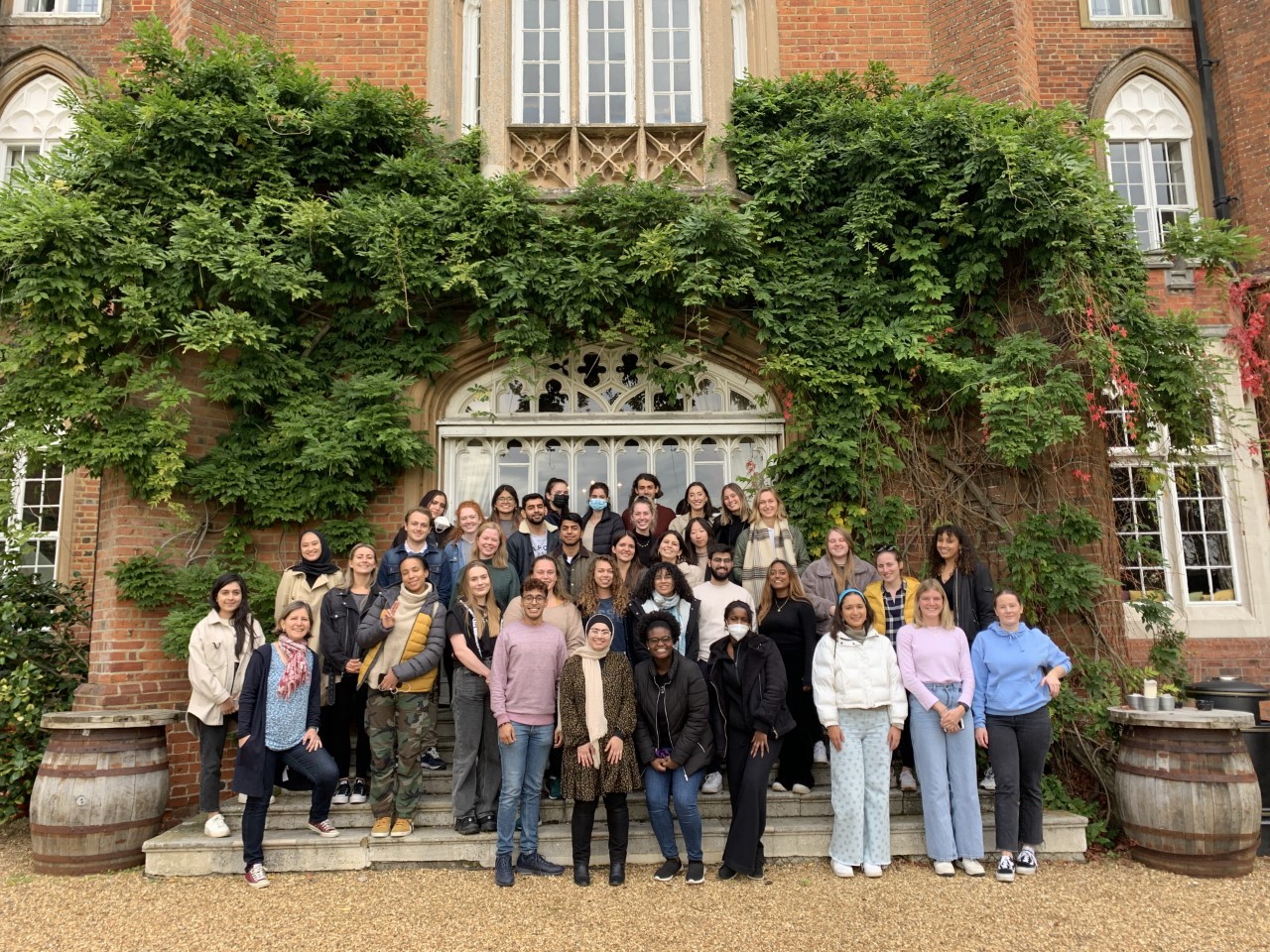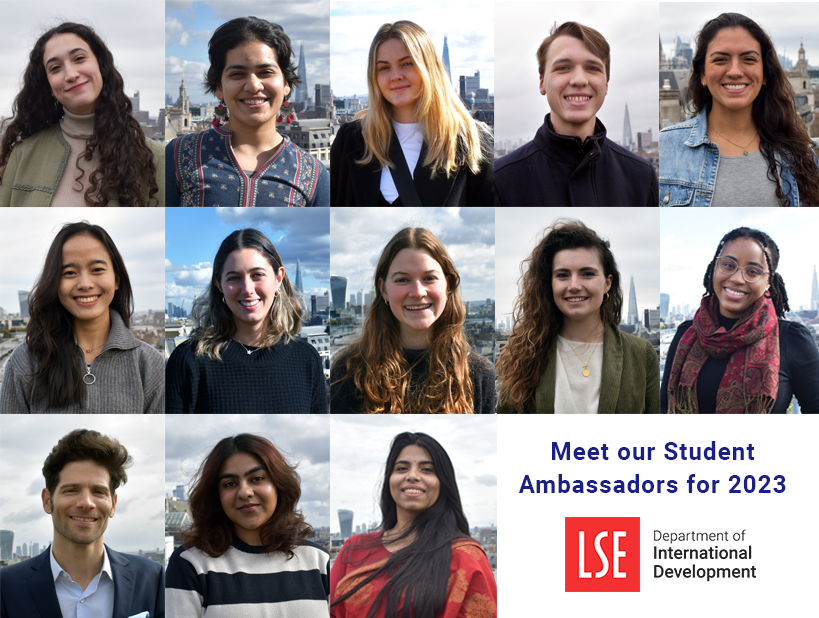2020-21 graduating student Roberta Kisubi and 2019-2020 alum Matilda Mutanguha, both from ID’s MSc programme in Health and International Development, reflect on the benefits of connecting with peers across different year groups.
Connections
Roberta and I attended LSE at different times and connected on our shared experiences as East African females with a passion for health and development and aspirations to one day inform transformational policies in our home countries, Uganda, and Rwanda.
Roberta first reached out to me following her LSE admission and was interested in learning more about the HID programme from an alumnus as well as receiving guidance on how to get the best out of her LSE experience. I was more than happy to discuss several highlights from my time at the LSE which included HID socials, the Geneva trip as well as the numerous LSE student support services and my experiences as part of PfAL. PfAL is an extra-curricular programme exclusively available for African graduate students at the LSE. This programme consists of planned events and activities that aim to promote knowledge sharing amongst students and inspire discourse around the challenges and opportunities for development in Africa.
This was an extremely important connection because it illustrated how HID students can connect not just within the MSc programme but through extracurricular activities that highlight LSE’s rich social culture, beyond academia. It’s also very important for international students to find a defined community of peers that share similar life experiences and can help them navigate their time in London and at the LSE. This is why I encouraged Roberta to sign up for PfAL because I understood the importance of networking with a group that shared an analogous experience coupled with a drive to learn, grow, and develop into leaders of the African continent.
PfAL experience
Following my advice, Roberta decided to explore the PfAL opportunity and applied for two main reasons. First, the programme placed immense value in going beyond networking to provide students with skills development and professional experience. This was particularly attractive to her because she had only worked for a few years prior to coming to the LSE and was keen to expand her skill set post-MSc. Second, the programme’s emphasis on bringing Africans together to critically analyse the continent’s challenges paralleled her interest in using her degree to make a tangible difference in Uganda.
I was part of the PfAL 9 cohort and was inspired to give back by participating in the inaugural PfAL Mentorship Initiative in order to support the PfAL 10 cohort. This mentorship initiative was started as a response to the impact of Covid-19, especially since students would not be able to attend the in-person events that are an integral part of the PfAL experience. It is through this mentorship programme that I solidified my friendship with Roberta. I was especially interested in mentoring students within the health group of the PfAL proposal competition because I felt well equipped as a former HID student and also as someone who had previously participated in the competition.
During the PfAL proposal competition, Roberta decided to join the health group as this aligned with her interests in health policy. It was therefore serendipitous that I would then go on to mentor Roberta during her PfAL experience. My role as a PfAL mentor was extremely invaluable as I provided the PfAL 10 health group with useful insights on how best to frame the proposal to ensure success. The team was extremely receptive to myself and the other mentor’s advice because they had won the PfAL proposal competition in previous years. The team’s hard work coupled with the mentorship advice they received paid off resulting in a second-place win totalling £400. Through the mentor-mentee engagement, Roberta’s proposal writing skills improved and she also learnt how to highlight her strengths to increase chances of success. Roberta truly believes that the skills the PfAL mentors imparted will benefit her beyond PfAL as she begins her career.
Health and International Development experience
Our mentor-mentee relationship extended beyond PfAL to include support in Roberta’s degree course. As I had pursued the same course in the previous year and completed some of the same modules, I was able to provide Roberta with much needed perspective and reassurance as she was getting accustomed to the high demands of the MSc programme. For example, for the International Development consultancy course, I provided Roberta with knowledge on how to manage time and strategically distribute tasks to ensure good performance.
Roberta’s team achieved a Distinction for the consultancy, and she can confidently say that mentorship program and advice received played a role in the way she approached her work. Additionally, I also encouraged Roberta to pick courses with assessment methods that aligned with her strengths. This ensured that she was able to strike a balance between selecting courses she enjoyed that were also predominantly essay assessed. I also strongly encouraged Roberta to use LSE services such as LSE LIFE and the Careers Service which have been extremely beneficial.
Looking forward
All in all, this was a fantastic opportunity to connect with and guide future leaders. The experience highlighted the importance of utilizing networks to ensure that alumni and current students can learn from each other through an informal transmission of knowledge and psychosocial support that is relevant to professional and academic development.
The views expressed in this post are those of the author and in no way reflect those of the International Development LSE blog or the London School of Economics and Political Science.
Photo credit:





